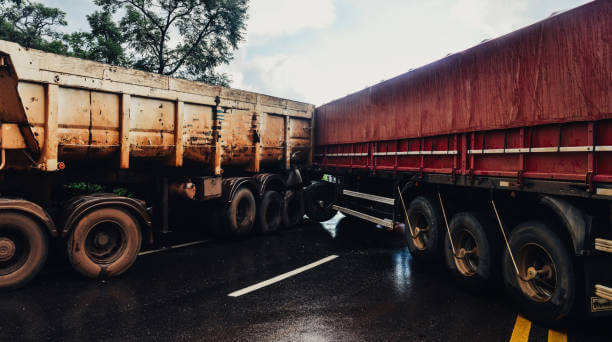News
Slovak Articulated Lorry, Austrian Trailer – German Accident

istockphoto-1193742408
Slovak Articulated Lorry, Austrian Trailer – German Accident
The Karlsruhe Higher Regional Court was currently dealing with the application of German law to the internal compensation of the liability insurers of the towing vehicle and trailer in cases in which both the towing vehicle and the trailer were registered and insured for liability abroad in different countries. The towing vehicle was insured by a Slovak public company and the trailer was insured by an Austrian insurance company. This was based on a legal dispute between two motor vehicle liability insurers who were arguing about compensation claims of the plaintiff against the defendant insurance company. After an accident in Germany, the insurance company of the articulated lorry had settled the damage that had occurred to the accident victim (16.755,27 €) and claimed half of the settled amount (8.377,64 €) by way of compensation for multiple insurance from the trailer insurance company.
The Mosbach District Court, which dealt with this in the first instance, fully upheld the action brought by the Slovakian insurance company; German law is to be applied to the question of a compensation claim between the parties as liability insurers of a team involved in an accident. Since the obligations of the parties stem from an accident event and thus from a non-contractual obligation, Art. 19 Rome II Regulation and Art. 20 Rome II Regulation also apply to the relationship between the parties. In relation to the accident participant, however, Art. 7 Rome I Regulation is applicable, since the claim for damages follows from the respective liability insurance contracts. German law also applies here, since the Federal Republic of Germany has made use of the opening clause in Article 7 IV lit b Rom I Regulation and the duty to insure a trailer is based on German law, §§ 1, 4 AuslPfVG.
The Higher Regional Court of Karlsruhe confirmed this decision after the Austrian insurance company had appealed against this judgement.
If one assumes that the claim for recourse is qualified as a claim based on improper action, German courts have international jurisdiction based on Art. 7 No. 2 of the Brussels I Regulation. The concept of improper action is to be understood broadly. Against this background, it is common practice that recourse actions between several parties liable for damage also fall under Art. 7 No. 2 of the Brussels I Regulation, if the right of recourse is not based on a contractual agreement between the parties. In the absence of a contractual agreement, only a statutory obligation can be considered, thus, in deviation from Art. 4 of the Brussels I Regulation, the trailer insurance can be claimed in the Federal Republic of Germany in which the traffic accident occurred.
Even if one wanted to qualify the present claim for compensation as a contractual claim, there would be international jurisdiction of German courts due to the uncomplained admission of the trailer insurance company according to Art. 26 Para. 1 of the Brussels I Regulation. Although the trailer insurance company complained to the district court in a letter dated June 19, 2020, about the lack of international jurisdiction, this complaint was made too late.
In the matter, the district court rightly affirmed a half compensation claim of the towing vehicle insurance against the trailer insurance from § 78 VVG as in the internal relationship of the parties as liability insurers, German property law applies and the prerequisites for the right to compensation in the event of double insurance are given under German law.
According to the Rom I and Rom II Regulation, the asserted claim is subject to the law of the Federal Republic of Germany regardless of whether the claim is statutory or contractual.
Regarding the question of which substantive law is to be applied to which specific claims in the case of this parallel validity order, the Higher Regional Court follows the case law of the Federal Court of Justice.
Another appeal against this judgment to the Federal Court of Justice is not possible.
